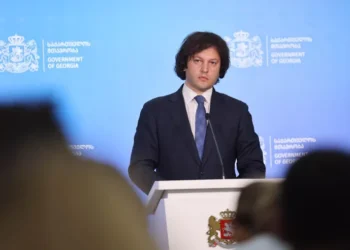In this short essay, we cannot say anything different from what has already been said; what the reader has heard or read many times before. So, let us assume that this is how we talk to ourselves, but aloud, so that others can hear. This statement is a disclaimer of a kind, so that the following considerations will not be regarded as a claim to any discovery, but as merely an attempt to bring together those few very important principles, statements or theses which we already know but which we find so difficult to firmly establish in practice. Without them, we will use up a lot of energy, expectation and enthusiasm “going around in circles” on the path of our country’s development, just when that energy, expectation and enthusiasm should be translated into useful action.
Recognizing and objectively evaluating the past
Underestimating the political formations and leaders of all previous generations is harmful to the country’s reputation and development. It is unacceptable that every new official power tries to rewrite the country’s past or to start counting history from the time it came to power (from scratch). This cannot be characterized otherwise than as a lack of political culture, a deficit of statesmanship, a prerequisite for vicious practices. Georgia’s overall success and progress can only be seen as a combination of success and progress that began in the past. Only in this way will we come closer to establishing healthy political traditions, respect for each other in public affairs, participation and, where necessary, fair criticism and condemnation.
A convergence of processes inside and outside the country
Once again, let us remind ourselves of the well-known thesis about the inseparability of domestic and foreign policy, especially in current conditions. It is very difficult, maybe even impossible, to take out of the country what you have not created through the domestic political process, or what you have created but in such a way that it is not suitable for “export”. In the external arena, any particular ruling power can only show off its success inside the country, its well-deserved authority and reliability in the eyes of its own society. Otherwise, you can’t “sell”, can’t deceive, can’t impose a fiction either on your own people or on others.
Pragmatism and rationalism of Georgian politics
Given the current and future challenges of the Georgian state, the main guideline for the activities of any (any!) state formation should be the practicality of the political process, tangible economic benefits and security considerations based on real opportunities.
It is very important that Georgia be not only a consumer but also a contributor
Despite different ideological or partisan views, all political actors operating in a country should be united to bring the average citizen two main outcomes: (a) greater prosperity and (b) greater security. All other goals or objectives are merely “productive” and based on these two.
Properly “perceiving” the situation
As the world enters a phase of new confrontations, a pedantic and dispassionate analysis of the situation is a necessary skill for the defense and viability of the Georgian state.
At such times, decisions or actions dictated by traditional Georgian romanticism or idealism are risky, and sometimes irreversibly destructive. Abandoning finally “rose-tinted glasses”, we must learn to consider our own interest with maximum benefit and determine the algorithm of actions to achieve it without emotions. Bringing this approach to the status of a “cult” in state policy will help us move smoothly and relatively safely through international politics imbued with immense selfishness and the “geoculture” of trade.
The Middle Class
One of the key conditions for the sustainable development of the political system and the country is the existence of a self-sufficient, free middle class with a critical opinion.
Despite repeated attempts to bring this social stratum into decline in modern times, there is no doubt that along with a solid constitutional mechanism and a healthy political tradition, the guarantor of the country’s resilience and sustainable development is the middle class. It is also only through it and with its support that political radicalism, social populism and the cheap manipulation of public sentiment can be effectively contained.
Institutions, institutions, institutions
Taking the policy and decision-making process outside of institutions not only harms the current quality of Georgian politics, but also jeopardizes the country’s national security by undermining trust in the institutional process, nullifying the credibility of the civil service and causing civil servants to lose confidence.
The result of this dangerous spiral is the alienation of citizens from their own country and their attempt to exercise their political rights and freedoms in the form of radical, uncontrolled civil protest.
Government and (or) power
Government does not always equal power, and power, unfortunately, is not always acquired by formal government.
At the same time, the phenomenon of power has a much greater bearing and its only acceptable form is embodied in properly and legally functioning institutions. The basis of modernization of the country is functional (not nominal, imaginary or conditional) institutionalism. Thus, the institutional distribution of power and modernization of the country are inseparable and form a single organic whole.
Georgia’s people should realize the need for change with their hearts and minds
This equal unity is an essential condition for our national-state existence. As a result, any deviation from the relationship between power and functional institutions renders action illusory and the achievement of real results for development a dim prospect.
Reforms are for us, not for them
Real reforms should also serve real purposes – honestly, not hypocritically. And, at the same time, any reforms should be carried out primarily for the benefit of the state’s own society, really improving its condition and the country’s competitiveness. As a result, a reform which aims only to win the hearts of others or to gain favor with the “protocol record,” means discrediting the essence and meaning of reform (and thus the necessary changes).
Therefore, we should realize the need for change with our hearts and minds; it must become a thorough and open demand, and we should want it to happen, again, for the citizens of Georgia – the ultimate beneficiary of any healthy reform. It is also important that the beneficial results of changes are felt not only by the “elite” layer, but also by the average citizen on a real and daily basis.
Moreover, the necessary changes in time and space are among the main conditions for the mobility and capacity of a small country. Immobility, adaptability, and weakening of national-state and societal ambitions will be fatal in today’s complex world.
Analyzing, listening, collegiality
The insufficiency of these three components inevitably leads to a complete absence of informed decisions or a significant deficit thereof. However, without them, we cannot even talk about well-considered policy actions.
At the same time, informed, i.e. knowledge-based, decision-making necessarily involves respect for and systematic parity with academic opinion and the consideration of scientific assessments by public administration bureaucracies. Without such participation and interaction, the activities of the Georgian state will be significantly impaired.
To be reliable, to be helpful
A small country is very peculiar: on the one hand, it does not bear the burden of defining the system of international relations, and on the other, the possible consequences of a system defined by others may turn out for a small country to the detriment of its own interests.
We should also bear in mind that “interests of influences” and “hegemonic aspirations” are inherent in any international system, and there is no prospect of changing this or establishing a different hierarchy of relations in the foreseeable future. Therefore, our attitude should be relevant and always realistic.
When talking about relevance and realism, the baselines need to be satisfied: reliability and helpfulness. Without these two, achieving the self-sufficiency necessary for a country’s security, economic sustainability and development – only relying on “approval,” “permanent endowment” and “geopolitical babysitting” by others – will become a futile and frustrating experiment. Thus, it is very important that our country be not only a consumer but also a contributor within the limits of its capabilities. Moreover, in the process of constantly and continuously asserting the place that belongs to it, it must act even on the edge of those capabilities.
Rejecting unhelpful stereotypes and daring to embrace innovations
Which, above all, means rethinking and radically revitalizing the existing models of modern governance, national security, defense and economic components.
We have spoken and written about this issue many times before. And here, in the form of a brief thesis, let us repeat that a unified security system, of course, includes its traditional – military, economic and diplomatic – pillars. However, the uniqueness, identity and capabilities of Georgian security are unthinkable without a few necessary fundamentals, namely: An open society, firmly based on inclusiveness, an economy with equal starting opportunities and free from a “sectarian” (i.e. “closed”, tailored to the undeserved interests of a “select few”) structure; The rule of law (not law in its narrow and formal sense); Democracy (a system better than which Mankind has not yet invented) as proof of our competitive place in the civilized community; Meritocracy that provides space for the potential of intelligence and law-abidingness; Restoring institutions and maintaining their effectiveness, including through depoliticization-eliminating the influence of parties.
All this requires maximum mobilization of public will, not only in the long term, but also on a continuous basis. A culture of “moving thought” fueled by intelligence, knowledge, awareness and the proper taste should pave our way in the coming decades in the Georgian space based on healthy ambitions – where room for regressive clichés, ingratiation and meager obedience standards will be minimized as much as possible. Provincialism is a great misfortune. It is one thing when it happens to an individual and becomes his personal tragedy, and quite another when it spreads over the national body and becomes the trial of the whole country. In such a case it must be tamed in time and given its place.
OP-ED BY VICTOR KIPIANI, GEOCASE CHAIRMAN














